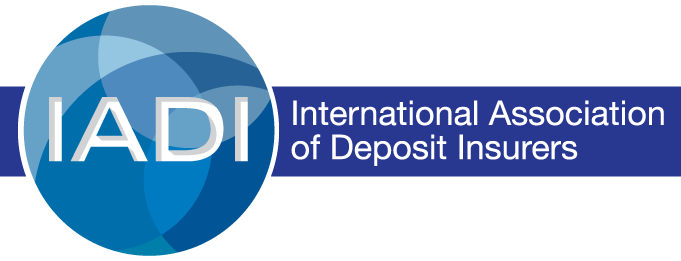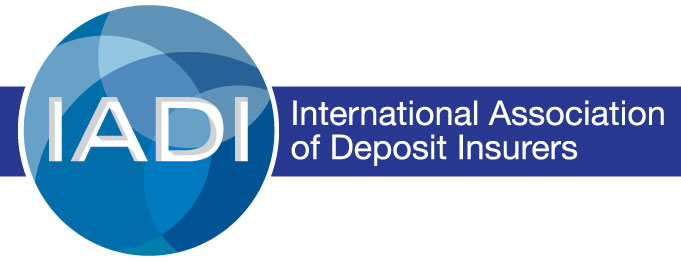Keynote speech by Eva Hüpkes, Secretary General, International Association of Deposit Insurers, at the 2023 PIDM National Resolution Symposium, Kuala Lumpur, Malaysia, 18 October 2023.
Good morning,
Many thanks to the Malaysian Deposit Insurance Corporation (PIDM) for inviting me here today. PIDM has been a valued member of the International Association of Deposit Insurers since its establishment in 2005. In fact, the first CEO of PIDM was also the first President of IADI. I understand that October is generally considered part of the rainy season on the west coast of Malaysia including Kuala Lumpur. Sometimes in the world of banking, it doesn’t just rain—it pours! So, what’s the financial equivalent of carrying an umbrella for a rainy day? It’s having deposit insurance So, I thought that “preparing for a rainy day” would be an appropriate title for my remarks today. My remarks offer a complementary view to the interesting article by Rafiz Azuan Abdullah, PIDM’s CEO, that was published last Monday in Business Today.¹ Carrying an umbrella is probably not enough to prepare for a monsoon. You will want to make sure that your home is secure, that there are no leaks, and that you have measures in place to prevent flooding. To ensure that PIDM and all banks are well prepared for any financial monsoon that might hit any of them, PIDM recently issued guidelines for resolution planning for deposit-taking members.² So, I would like to focus my remarks on the importance of preparing and testing our financial safety net when the sun is shining. Let me start by sharing with you some thoughts on the mandates of deposit insurers and how their role in the financial safety has evolved and grown over time.
The expansion of deposit insurers mandate’s worldwide
Deposit insurers’ mandates range from narrow “pay box” systems to those with broad responsibilities, such as taking preventive action, minimising loss, and managing risk. IADI groups mandates into four categories:
- “pay box” mandates, where the deposit insurer is only responsible for the reimbursement of insured deposits;
- “pay box plus” mandates, where the deposit insurer has additional responsibilities, such as certain resolution functions;
- “loss minimiser” mandates, where the deposit insurer actively engages in some least-cost resolution strategies; and
- “risk minimiser” mandates, where the deposit insurer has comprehensive risk minimisation functions that include a full suite of early intervention and resolution powers, and in some cases prudential oversight responsibilities.
The diversity of mandates is reflected in IADI’s membership. Amongst IADI’s 95 members, 19% have a pay-box mandate, 49% have a paybox plus mandate, 19% have a loss minimiser mandate, and 12% have a risk minimiser mandate.³ In addition to deposit insurers as members, IADI has a growing number of associates. These are participants in the financial safety net that have an important role in crisis management and resolution, but do not have a deposit insurance function. These include central banks, supervisors, and resolution authorities. PIDM holds a risk minimiser mandate to protect the financial system by assessing and managing risks and by having comprehensive early intervention and resolution powers to deal with troubled member institutions at the least cost to the financial system. The number of deposit insurers that – just as PIDM – are responsible for implementing bank resolution tools, either alone or together with other participants in the financial safety net, is growing.
IADI’s expanded mandate
The broadening of deposit insurance mandates globally is accompanied by an increasing role for deposit insurers in resolution and resolution planning. Given this trend, IADI has in recent years focused increasingly on the role of deposit insurers in resolution and resolution planning, in particular for small and medium-sized banks. Small institutions are mostly outside of the scope of the resolution regimes that cover global systemically important banks (G-SIBs) and other systemically important financial institutions consistent with the Financial Stability Board’s Key Attributes of Effective Resolution Regimes. A key lesson from the events earlier this year is that the speed at which a bank run now can take place and spread to other institutions means that even banks that are not considered systemically important can undermine confidence in the financial system should they fail. The recognition that any bank can be systemic in failure is causing us to pay even more attention to crisis preparedness and planning. If the fall of a small bank can bring down bigger ones, then all banks could potentially be systemic. We therefore need to be well prepared to handle failure of banks whatever their size and systemic importance. To reflect this important development, Members agreed last month at the 2023 Annual General Meeting in Boston to expand IADI’s statutory mandate accordingly and to make the promotion of cooperation, coordination, and exchange of information on experiences, practices, and techniques with respect to effective deposit insurance systems, including bank crisis management and resolution “an explicit objective of the Association”. IADI’s mission is to strengthen deposit insurance systems worldwide and to contribute to the stability of financial systems. As set out in the amended statutes, IADI does this by
- developing effective policies and standards, taking into account the diversity of financial systems and circumstances in jurisdictions, and engaging with financial safety-net participants and their respective international standard-setting bodies, as well as with international financial institutions in the policy formulation process;
- collecting and analysing data and conducting research to support the effective operation of deposit insurance systems and to inform the development of effective policies; and
- promoting the implementation of effective policies both by monitoring and assessing adoption and by facilitating technical assistance, capacity building, and training of Members.
Finally, raising awareness among stakeholders of the key role of deposit insurance systems in maintaining financial stability is another important statutory objective of IADI. When the sky is blue and the sun is shining, no one carries raingear. Similarly, when times are good, it is easy to neglect or take for granted the important role of deposit insurers. What does our expanded mandate mean for our current activities? We are in the process of conducting a thorough analysis of the potential impact of the banking turmoil in the US, UK, and Switzerland in March of this year to understand the implications for deposit insurance policies. This analysis will feed into our policy work and the review of the Core Principles of Effective Deposit Insurance Systems. The conclusions of our analysis will be summarised in a report that we plan to publish by year-end. They are intended to complement the “lessons learnt” reports that the Basel Committee and the Financial Stability Board published recently.
The role of the deposit insurer in contingency planning and crisis management
Let me now turn to the important topic of planning. One of the key lessons from the Global Financial Crisis, and again this year’s “mini crisis”, is that preparation is half the battle, or to quote Benjamin Franklin “By failing to prepare, you are preparing to fail.” The speed with which deposit withdrawals occurred in the US, UK, and Switzerland earlier this year highlighted the importance of authorities being able to respond very quickly. According to IADI Core Principle 6 – “Deposit Insurer’s role in contingency planning and crisis management” “[t]he deposits insurer should have in place effective contingency planning and crisis management policies and procedures, to ensure that it is able to effectively respond to the risk of, and actual, bank failures and other events. The development of system-wide crisis preparedness strategies and management policies should be the joint responsibility of all safety-net participants. The deposit insurer should be a member of any institutional framework for ongoing communication and coordination involving financial safety-net participants related to system-wide crisis preparedness and management.” This Core Principle creates the expectation that the deposit insurer will
- i. have its own effective contingency planning and crisis management policies and procedures in place;
- ii. develop and regularly test its own contingency planning and crisis management plans;
- iii. be part of an institutional framework for ongoing communication and coordination involving safety-net participants in relation to system-wide crisis preparedness and management; and
- iv. participate in the development of pre- and post-crisis management communication plans involving all safety-net participants in order to ensure comprehensive and consistent public awareness and communication.
The events of March this year underlined the importance of contingency planning amongst financial safety net participants to ensure that cooperation and information sharing works smoothly in times of stress. To ensure early and effective communication, information-sharing and coordination arrangements should be formalised in memoranda of understanding or other similar arrangements, including institution-specific arrangements. Where there is a material presence of foreign banks, such arrangements may also need to include safety net participants from key host authorities. While the development of contingency plans and a playbook, underpinned by information sharing and coordination arrangements, is useful, it is not be enough. A static plan will quickly become outdated. Planning is a dynamic and iterative process that needs to be carried out on an ongoing basis as banks and their operations constantly change.
Contingency plan testing and crisis simulations
How do you know that the plan will work as intended? A plan, after all, is only a plan. Contingency plan testing, fire drills, and crisis simulations are useful ways to gain assurance. According to the 2023 IADI Annual Survey, 55% of all deposit insurers conduct scenario analysis or resolution simulation exercises. Not surprisingly, deposit insurers with a broader mandate are significantly more likely to conduct simulation exercises (of Paybox: 40 percent; pay-box plus: 46 percent; loss minimiser: 71 percent; risk minimiser: 100 percent conduct simulations). Research conducted by our Regional Committee of North America found that testing of contingency plans has increased in the wake of the Global Financial Crisis.4 However, largescale simulation exercises or “war games” remain infrequent given that they require significant resources and technical expertise. They are however worthwhile activities, in particular if they involve all relevant safety net participants. They can help to identify weaknesses or gaps in existing plans and mechanisms, train staff, clarify roles, and thus improve preparedness. By involving other safety net participants, authorities can test arrangements for sharing and accessing relevant information and make any necessary changes in legislation, regulations, or memoranda of understanding to address any gaps or uncertainties. Testing involving individual banks could include working with individual banks to test the single customer view, and ready access to all the information needed to implement a rapid reimbursement or transfer of funds. Oftentimes such exercises will generate findings that not only help enhance readiness for crisis situations but also help enhance business capabilities and improve resiliency in business-as-usual times. Demonstrating that the system can deal effectively with bank failures can also help to maintain public confidence in the financial system. Encouraging testing and simulation exercise is therefore one focus area of IADI going forward.
Conclusions
Malaysia actually has a true tropical climate, so heavy rains can occur throughout the year. Unfortunately, climate change means that the weather is becoming more unpredictable everywhere. Banking systems are in no way different. As we saw earlier this year, financial storms can come out of nowhere and happen virtually overnight. So planning is important. It’s better to stay dry than to be caught in the rain. But even if the rain does come, you can only feel safe if you’re prepared for it.
References
IADI, (2021). Contingency Plan Testing in North America: Results of a Research Project Undertaken by the Canada Deposit Insurance Corporation on behalf of the RCNA. International Association of Deposit Insurers Regional Research Paper, June 2021.
¹ https://www.businesstoday.com.my/2023/10/16/just-in-case-protection-systems-for-financial-consumers/
² 20230908 Guidelines on Resolution Planning for Deposit-Taking Members (pidm.gov.my)
³ Based on the 78 members that responded to the 2022 IADI Annual Survey
⁴ IADI (2021).

